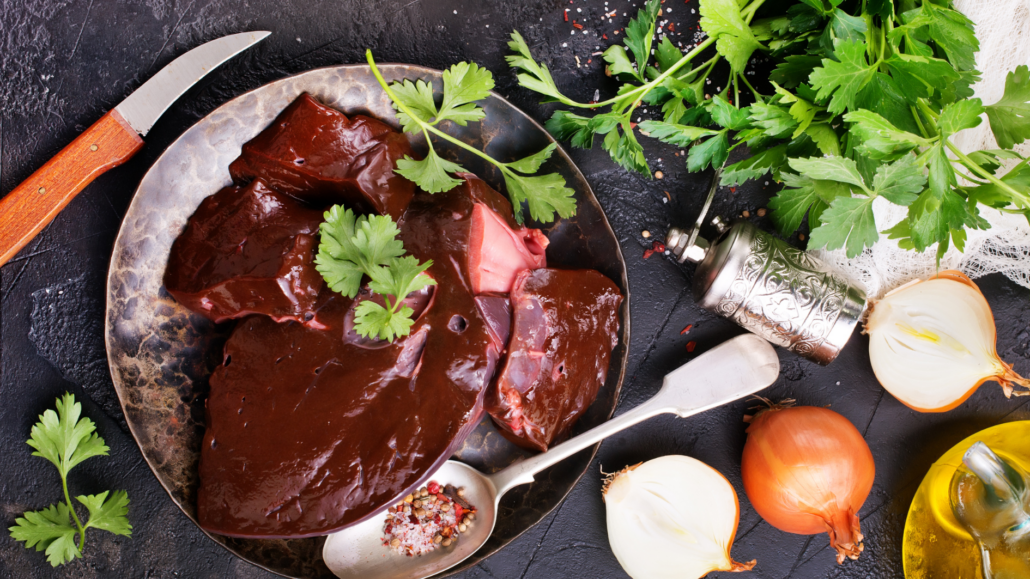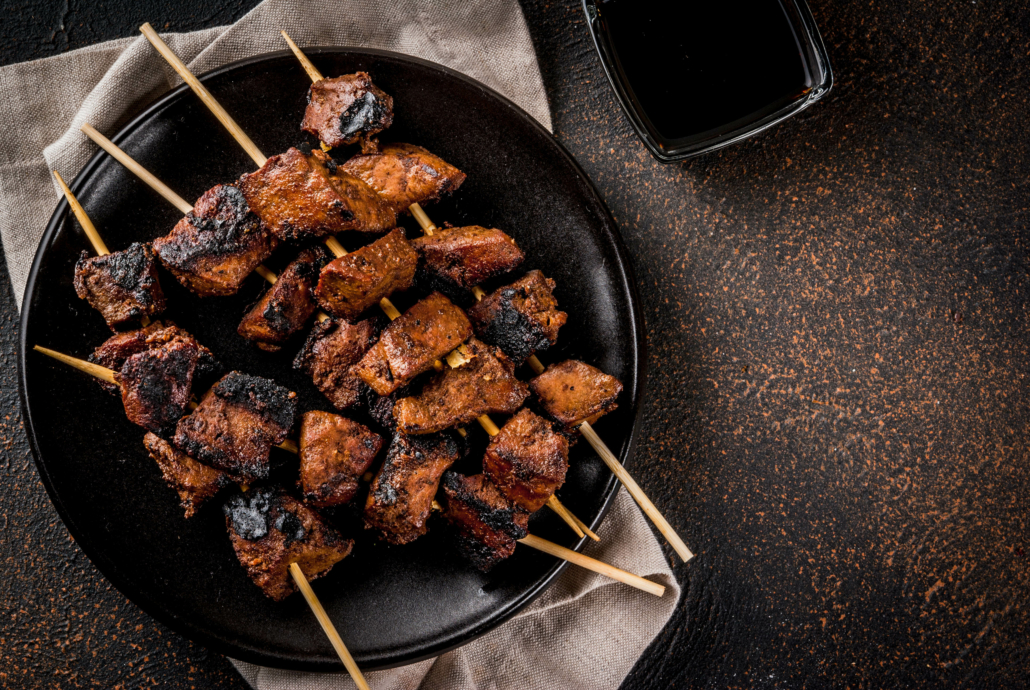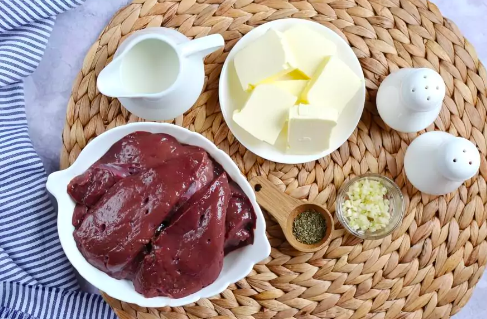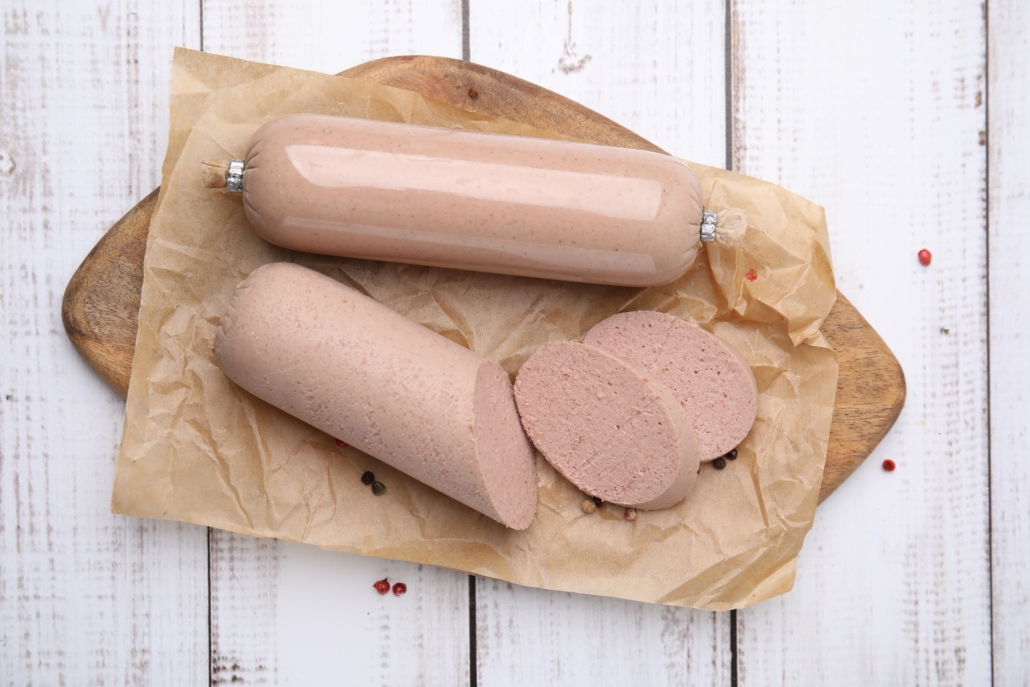We include products in articles we think are useful for our readers. If you buy products or services through links on our website, we may earn a small commission.
Is Eating Liver Good for Your Liver?
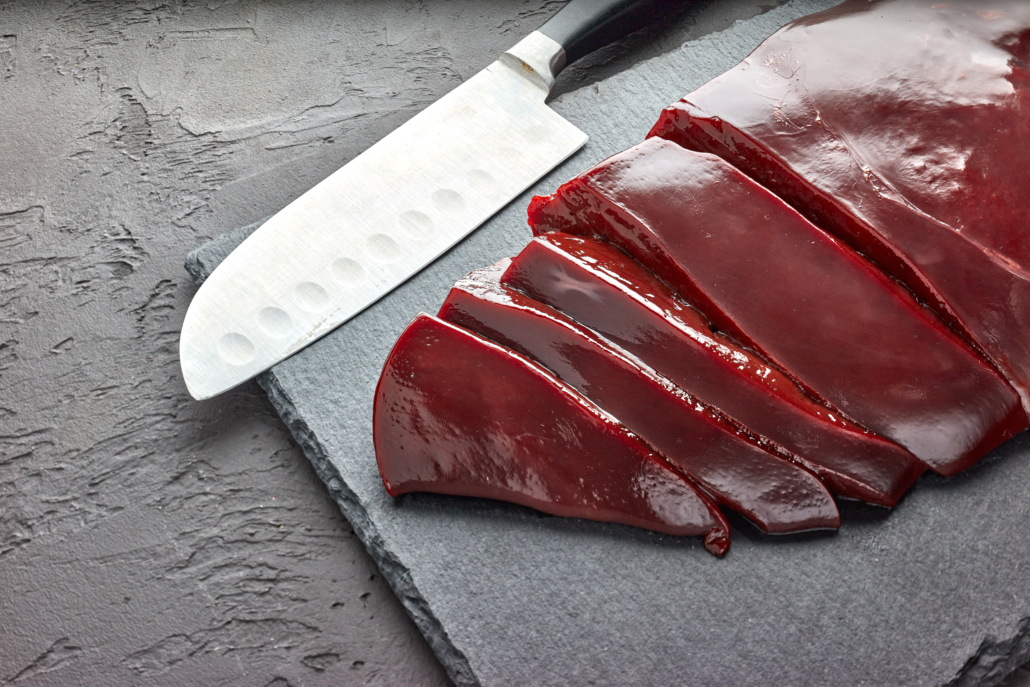
If you’re familiar with nose-to-tail eating then you’ve probably heard about the principle of “like-supports-like.” This refers to the belief that the organ you eat provides specific benefits to the corresponding organ in your body. Since liver is one of the most nutrient-dense and accessible organs, you may be wondering if eating liver is good for your liver?
The short answer is yes!
Liver is a fantastic source of numerous vital nutrients that directly benefit the health of your liver.
These nutrients include vitamin K2, A retinol, heme iron, B vitamins, and liver-specific peptides and compounds.
In this article, we’ll look at how these liver-specific nutrients and enzymes make eating liver a fantastic approach to boosting and protecting the health of your own liver.
Table of Contents
Is Eating Liver Good for Your Liver: Fast Facts
Various edible livers from beef, lamb, pigs, and duck provide rich sources of various nutrients that have been found to benefit the health of your liver. These include:
- Vitamin K2: promotes liver cell regeneration.
- Vitamin A: Essential to the production of bile, which is necessary for the digestion of fats, and it also helps protect the liver from toxins.
- Iron: Transports oxygen to the liver. The liver needs oxygen to function properly, and a deficiency in iron can lead to anemia, which can damage the liver.
- B vitamins: B vitamins, such as vitamin B12, folate, and niacin, play a role in the metabolism of fats, which is important for liver function.
- Peptides: Consuming certain peptides in liver has beneficial effects on the liver. For example, carnosine, a peptide with antioxidant properties, may help protect the liver from damage. Glycyl-histidyl-lysine (GHK) has been found to promote liver cell regeneration and has the potential to treat liver disease.
Nutrients You Get from Eating Liver that are Good for Your Liver
Let’s take a closer look at some of the key nutrients you get from eating liver that is good for your liver.
Vitamin K2
Most people are unfamiliar with vitamin K2, but emerging research tells us that it is one of the most important dietary nutrients in any food, and liver is nature’s most abundant source.
K2 was discovered by dentist and dietary researcher Weston A. Price in the early 20th century. Dr. Price visited traditional cultures around the world, searching for their secret to dental health and the absence of modern diseases.
He developed a theory that all non-industrialized diets contained an abundance of an as-yet-to-be-discovered nutrient that he called “activator X.”
This special vitamin unlocked the benefits of various other fat-soluble nutrients found in the fatty meats and organs consumed in abundance by traditional peoples. It was later confirmed that vitamin K2 does just that–activates vitamins A, D, and E to work synergistically to support numerous important functions, including the function of your liver.
| K2 Food | mcg/100 grams | RDV |
| Goose Liver | 369 mcg | 308% |
| Beef Liver | 263 mcg | 184% |
100 grams of goose liver pate has 369 mcg or 308% of the DV of vitamin K2.
Like goose liver, beef liver is also incredibly good for you, providing 184% of your K2.
Vitamin K2 has been shown to promote the recovery of liver function in patients with liver cirrhosis by activating hepatic oval cells for liver regeneration.
Vitamin K2 has also been shown to reduce the ability of liver cancer cells to invade and spread through the veins in the liver. The rate of venous invasion by liver cancer cells the group treated with vitamin K2 K was 2% at one year and 13% at two years. Meanwhile, the group that didn’t receive vitamin K2 showed rates of 21% at one year and 55% at two years.
Vitamin K2 supplementation is generally believed to be essential to manage liver disease.
Vitamin A
Liver is also nature’s most abundant source of vitamin A. And it comes in its most bioavailable form, called retinol.
Vitamin A is good for your liver because it maintains the integrity of the liver cells and supports the liver’s ability to detoxify harmful substances.
Vitamin A is also critical to the production of bile, which is necessary for the digestion of fats and the absorption of fat-soluble vitamins.
Additionally, vitamin A is an antioxidant that helps to protect the liver from damage caused by free radicals.
Vitamin A deficiency can impair liver function and increase the risk of liver damage.
| Foods High in Vitamin A | MCG per 100 grams | %RDV | |
| 1 | Turkey Liver | 21698 | 2410.% |
| 2 | Duck Liver | 11984 | 1331% |
| 3 | Turkey giblets | 10737 | 1193% |
| 4 | Goose liver | 9310 | 1034% |
| 5 | Liver sausage, liverwurst, pork | 8309 | 923% |
| 6 | Lamb liver | 7,491 | 832% |
| 7 | Beef liver | 4947 | 549% |
B vitamins
B vitamins, particularly B12 and folate, support liver health by aiding in the metabolism and detoxification of harmful substances in the liver.
Additionally, B vitamins help to reduce inflammation and support the production of new liver cells, which can aid in liver regeneration.
Vitamin B3 (niacin) has been shown to protect and prevent liver damage from Non-Alcoholic Fatty Liver Disease. 5 Beef liver is one of nature’s best sources of B3, providing 14.9 mg of B3 per 85 grams.
A deficiency in B vitamins can lead to poor liver function and increase your risk of liver damage.
| B12 Food | Per 100 grams | %RDV |
| Lamb Liver | 90 mcg | 3750% |
| Veal Liver | 85 mcg | 3541% |
| Beef Liver | 83 mcg | 3458% |
| Lamb Kidney | 79 mcg | 3291% |
| Turkey Liver | 58 mcg | 2416% |
| Duck Liver | 54 mcg | 2250% |
| Goose Liver | 54 mcg | 2250% |
| Pork Liver | 26 mcg | 1083% |
Heme Iron
Iron plays a key role in supporting liver health by helping to detoxify the liver, binding to and removing harmful toxins, and by supporting the production of new liver cells.
The liver is responsible for producing and storing iron, as well as regulating the amount of iron in the body. When the liver is damaged, it may not be able to properly regulate iron levels, which can lead to iron overload.
| Food Type | Per 100 grams | %RDV (18 mg) |
| Duck liver | 30.5mg | 170% |
| Beef Liver | 17.9 mg | 99% |
| Pork liver | 17.9 mg | 99% |
| Lamb Liver | 8.7mg | 48% |
Carnosine
In addition to providing well-known vitamins and minerals, eating liver is good for your liver because it provides liver-supporting peptides.
For example, a peptide called glycyl-histidyl-lysine (GHK), more popularly known as carnosine, provides antioxidant properties. Carnosine can inhibit liver damage by scavenging reactive oxygen species, protecting the liver cells from oxidative stress.
Carnosine has also been found to reduce liver damage caused by toxins, such as alcohol and drugs, and to improve liver function in people with liver diseases such as nonalcoholic fatty liver disease and hepatitis.
Studies have reported that beef liver can contain between 100-250mg of carnosine per 100g of liver.
Cytochrome P450 (CYP)
Cytochrome P450 (CYP) is a group of enzymes that are found in the liver, as well as in other organs in the body.
These enzymes are responsible for the metabolism of many substances, including drugs, toxins, and hormones.
In the liver, CYP enzymes play a key role in the detoxification of harmful substances by converting them into less toxic compounds that are eliminated by the body.
CYP enzymes help metabolize various medications, such as blood pressure medications, antidepressants, and opioids. They work to break down these drugs in the liver, so that they can be eliminated from the body more quickly.
Is Eating Liver Good for Your Liver: The Bottom Line
Liver is a nutrient-dense superfood loaded with vitamins and minerals that offer specific benefits to the health of your own liver.
Vitamin K2, B vitamins, vitamin A, heme iron, and bioactive peptides, including carnosine and CYP, aid the liver in protecting against oxidative stress, detoxing harmful substances, and regenerating liver cells.











